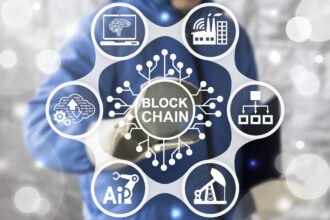We have published many posts here at Smart Data Collective over the past decade. Many of our posts are meant to highlight the extraordinary impact that big data is having on our world. However, some of my posts need to help people become more realistic understanding of the big data landscape. This is especially true in the arena of artificial intelligence, and the need for interpersonal skills in the age of AI.
AI Has More Limits Than People Realize
Many people have overly exaggerated beliefs about the potential of AI, or artificial intelligence. Their perceptions are especially optimistic when it comes to their predictions about big data in the workplace. Many people speculate that artificial intelligence will make many employees obsolete. They believe that even 90% of professional employees will be replaced by robots within the next 20 years. https://www.youtube.com/watch?v=15PK38MUEPM New reports have set some of these myths to rest. Joe McKendrick, a technology writer and evangelist with Forbes recently published a news article about the growing importance of interpersonal skills in an age dominated by machine learning and artificial intelligence. He points out that artificial intelligence is forcing brands to reassess their products and solutions. They are under more pressure than effort to deploy higher quality products more quickly, because advances in machine learning have heightened to consumer expectations of these services.
At The Same Time, AI Is Shaping HR Strategies
While many top-level executives are focusing on the impact of artificial intelligence on research and development, many of them have overlooked its contributions to the field of human resources. They also miss indicators that they will need to change their human resources strategy to align with the new expectations that have been set by advances in machine learning. A growing number of organizations are looking towards AI to make certain job functions redundant. McKinsey said that support services are going to be among those that will be targeted by AI.
“Many organizations have already tapped the potential of traditional levers such as centralization, offshoring, and outsourcing,” several authors from McKinsey explained in their report. “Today’s leaders are turning to digital solutions and automation to improve performance and reduce costs across finance, human resources, and IT.”
People working in these professions are going to need to rise to the occasion and demonstrate that they are too valuable to be replaced by automation. Some of them won’t be able to stave off future layoffs, but most will be able to retain their jobs. The McKinsey report shows that fewer than 30% of customer support jobs could be displaced with existing technology. The experts don’t believe that figure is going to increase significantly. The majority of jobs that are not going to become obsolete require human brain power, which machine learning algorithms won’t be capable of managing anytime soon. However, as lower end support jobs become eliminated, demand for the remaining jobs is going to increase. The standards will become a lot higher as well. McKenzie predicts that workers are going to need to improve their customer service and other interpersonal skills to maintain and edge in the job market.
Sales Employees Will Likely Remain Key Players
This opinion is echoed by Peter Schwartz, a top executive from salesforce. He states that artificial intelligence is not going to replace people in the sales profession. Schwartz says that salespeople are actually going to appreciate their advances in machine learning, rather than view them as a threat. This technology will save them a lot of time, which will afford them the opportunity to invest in developing interpersonal and creative skills. Some experts are even more optimistic. A conference at the World Economic Forum showed that AI will actually create another 58 million jobs within the next seven years.
Final Thoughts: AI Is A Source Of Both Pressure And Support
Customer support and sales professionals are responding to the evolution of big data. It has made their profession much more efficient and freed up time to develop other vital competencies. However, there is also a downside to this new technology. Big data and machine learning are also limiting the number of jobs, as some positions can already be replaced by AI. This means that they are going to need to go out of their way to improve their skills sets and stand out.









